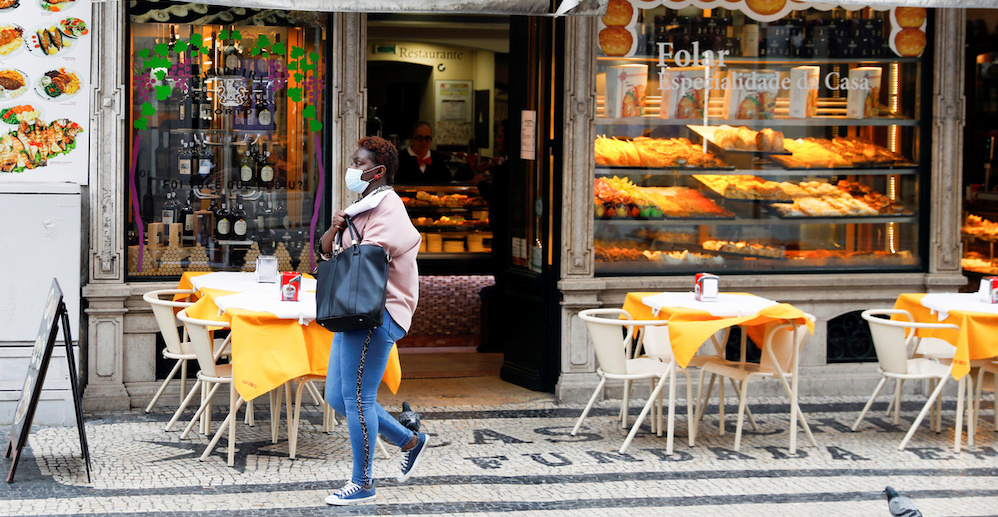The pandemic has affected people quite differently across the world. It has shown discrepancies (not that we weren’t aware of them) between peoples’ livelihoods – not just across different countries and continents, but also within the same buildings. Some of us have jobs which can be done remotely. Other have full-time jobs and permanent contracts while many others lead quite precarious lives.
This led to a situation where there are those who are actually saving up during the quarantine and those who lost their incomes altogether.
So, how does the saving happen? People on a fixed wage are no longer paying for transportation, eating out or going to bars, beauty salons and paying gym subscriptions. Hence, it feels like there are a few pennies to spare for those who are lucky enough to have their wages coming in during these times. Fortunately, this money could make a big difference to the lives of those hit hard by the crisis.
We improved the quality of our quarantine life and helped sustain small businesses by making a point of using the services of those businesses during the lockdown.
I started an online Portuguese course, a flamenco dance class, and ordered some products from online cafes and shops. It was partly because I felt privileged to keep receiving my monthly income under the current circumstances, and partly to make my life better in the lockdown.
The following three recommendations are of different local Portuguese services which I have personally tried out during the month of April. I am sure that each Lisbon resident has her/his own personal favorites. This is just a reminder that we can reconnect with our favorite small shops or other services to keep their lives going and to add some normality to our quarantine life.
So if you happen to be on a fixed income at the moment, what can you do to make a difference?

EAT A MOUTH-WATERING DESSERT
I cannot stress how much I love Rémi Coffee & Wine café. It is a tiny café of two or three tables. They have great Italian desserts (try out their Torrone as well as their cannoli). Moreover, they have great Italian products: many types of cheese, wine, biscuits, pasta, etc. You can order from their website or from Takeaway.com.

DANCE THE FLAMENCO
I was going to join Escola de Dança Raquel Oliveira for Flamenco classes before Covid-19 happened. After the lockdown, they offered a monthly subscription of only 20 euros per month for online classes. Once you pay, you get access to their online Flamenco teaching videos. Then, you can schedule a free Skype video call with the instructor to give you a feedback. You can find out more at their Facebook page here.
SPEAK PORTUGUESE
Portuguese is essential for every expat here. Of course, we get by in English very well in Lisbon, but you will be missing out on so much if you do not learn the language. And if you are already at a good level, your Portuguese might get rusty because of the current situation. I signed up for a class with Saudade Language School. At first, I was concerned about the idea of online classes, but it really worked out and it helped keep my Portuguese fresh.
If you feel like a free trial lesson, get in touch with them via their website here.
These are just few examples of thousands of businesses we can support. We will not prevent a potential economic crisis, but we can, personally, show solidarity. And to be honest, my quarantine has been so much better with socializing in my virtual Portuguese class, having fun with online Flamenco, and stuffing my face with delicious desserts.
So, it is a win-win.

About the author:
Sarah Nagaty is a PhD researcher of cultural studies in Lisbon. She’s lived in Portugal for two years.
As a student of cultural studies, Sarah is drawn to what connects people from different backgrounds to new cultures and places, how they relate to their new surroundings and what kind of activities they could engage with in their new hometowns.
See all of Sarah’s Dispatches posts here.
See Dispatches’s Lisbon story archive here.
Sarah Nagaty has a PhD in cultural studies, She’s lived in Portugal for six years.
As a student of cultural studies, Sarah is drawn to what connects people from different backgrounds to new cultures and places, how they relate to their new surroundings and what kind of activities they could engage with in their new hometowns.















